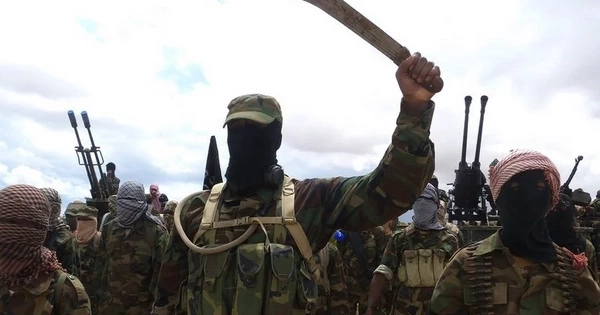The al-Shabaab militant group killed one of its defectors who surrendered to the Kenyan government in February 2015 after radicalized returnees were offered amnesty.
Subira Sudi Mwangole was shot dead at his brother’s house after 10 militants broke in and shot at him, injuring two others.
“He was watching the news at around 7 pm when they stormed the house on Thursday, May 12. They entered the house by force but not before the people inside fought back to repulse them. It was then that the killers shot two others in the legs before they shot Mwangole in the head twice,” said Msambweni OCPD Joseph Omijah.
According to the Standard, the shooters got away on a motorcycle Mwangole had been issued with by the government as part of his rehabilitation program.
Police in Kwale expressed concerns that more returnees will fear coming forth for fear of being killed following Mwangole’s murder.
In an interview with the Standard in 2015, Mwangole had revealed how he had been recruited into al-Shabaab and how the militant group operated.
“Muslim youth from Kenya and Tanzania, including myself, joined in July 2008 after recruitment. We were radicalized by the teachings of Sheikh Aboud Rogo who was an Islamist and jihadist before he was killed in mysterious circumstances in August 2012,” said Mwangole.
He further said that they were divided into clusters of five people and were transported from Kilifi to Lamu by public and private transportation during the night. The journey to Somalia took them about five days.
“There were about 600 Kenyan al-Shabaab fighters there, some had brought their families along. I was there for one and a half years and witnessed how some militants bribed the Kenya police to come back to the country. Some used boats and lorries to slip back into Kenya and most of them carried firearms,”said Mwangole in the interview.
He revealed that some of the militants were still active in Kwale and were in constant communication with the al-Shabaab in Somalia. He said that it was these people who were responsible for the wave of terror attacks that rocked the coastal counties in the years 2014-2015.
“There are about five active al-Shabaab cells each consisting of between two and five members in Kwale. They do not stay together, they do not know of other cells near them because there are trust issues among them,” said Mwangole.
He explained that his woes with the al-Shabaab begun when they noticed him at a local chief’s house.
“They came to my house and demanded to know what I had gone to do there but I told them I was handling a personal matter. They warned me and disappeared,” said Mwangole.
_______________________________________________________________________________





























